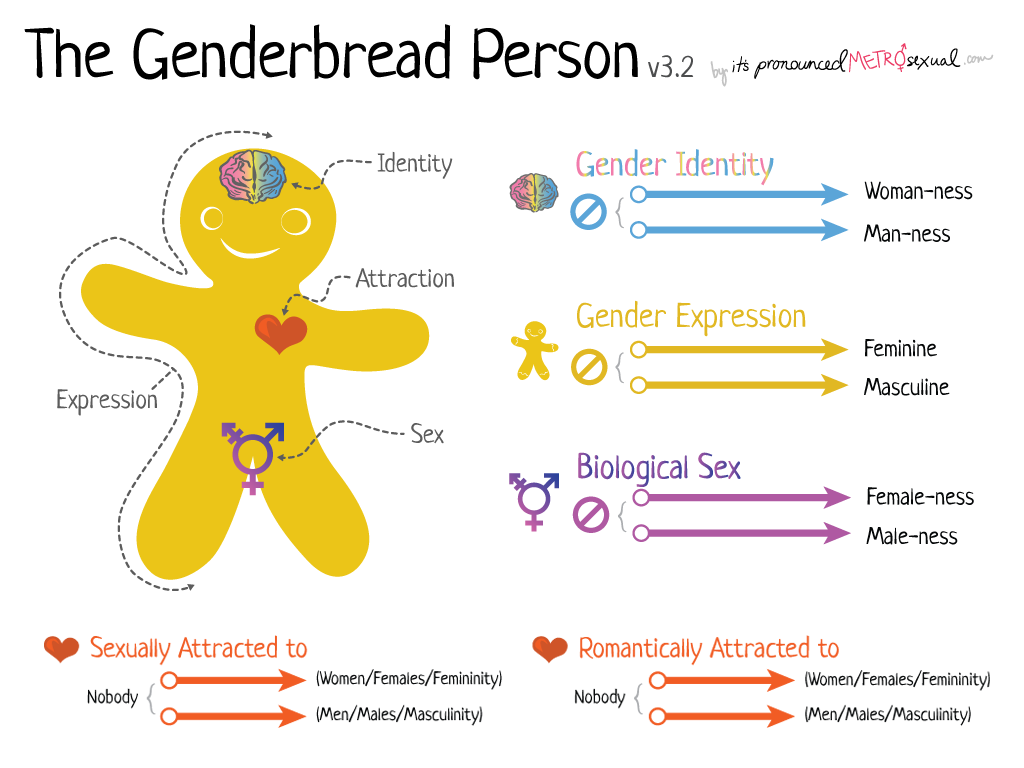Gender Identity
With the television show Transparent and transgender celebrities like Caitlyn Jenner and Laverne Cox in the public eye, gender identity and gender dysphoria are becoming well-known to the general public.
Gender and sex are often confused for the same concept, when they are, in fact, distinct. Gender is personally and culturally constructed, while sex is biological. Gender is both internal (what my gender is to me) and external (how I present my gender to others in my outward appearance). Sex may be assigned based on one's hormones, genitalia, and other biologically-based factors. Sexuality is related to one's romantic preferences and who one sexually is attracted to.
The Genderbread Person below is a useful tool for understanding how sex, gender and sexuality differ.
The American Psychological Association's Diagnostic and Statistical Manual (fifth edition) uses the term "gender dysphoria" when diagnosing gender identity issues. Gender dysphoria "occurs when there is a persistent sense of mismatch between one’s experienced gender and assigned gender" (https://www.psychologytoday.com/conditions/gender-dysphoria). Gender dysphoria can be very distressing and lead to feelings of depression and anxiety, relationship issues, and suicidal thoughts. Not all those who experience gender dysphoria identify as transgender or wish to alter their outward gender expression or gender identity. It can be helpful to view gender dysphoria as a spectrum of wide-ranging feelings, concerns, and/or behaviors.
A person who has gender identity concerns or is experiencing gender dysphoria may wish to seek therapy to help them sort out their feelings. At Heart of the City, we take a client-led approach to working with gender identity concerns. This means that we believe the client is the expert on themselves and we strive for them to direct the therapeutic experience. We believe this leads to an affirming and empowering experience for the client. Each person may choose to deal with their gender and gender expression in different ways and your therapist's role is to help you discern what is best for you and to support you in your choices. Experiencing gender dysphoria does not necessarily mean that one must undergo gender confirmation surgery or make significant changes in their outward appearance or presentation - each person may choose a path unique to them.
If you are experiencing gender dysphoria, gender identity concerns, or simply want to talk through and process your feelings, please feel free to contact us for a consultation, set up an appointment, or reach out to one of the trans-affirming organizations listed below.


